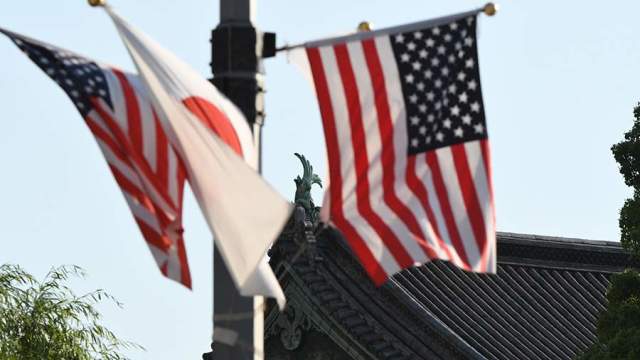Nikkei: Tokyo and NATO want to cooperate in the cybersphere and space to confront Russia and ChinaJapan and NATO plan to develop cooperation in space and cyberspace to confront the Russian Federation and China.
This was reported by the Nikkei newspaper on Saturday, May 27.
The article states that such a program will be aimed at unity in the approaches of the United States and Japan to Russia and China. It is assumed that it will concern cooperation between the two countries in cyberspace and outer space. In their opinion, Moscow and Beijing pay special attention to these areas. Such a document can be signed at the North Atlantic Alliance summit in Lithuania.
The newspaper drew attention to the talk about large-scale NATO cyber security exercises with the participation of its members and partners, which are planned to be held with Japan. In addition, Washington intends to coordinate approaches to new and breakthrough technologies and exchange them with Tokyo.
Countries plan to ensure security against perceived threats using artificial intelligence, biotechnology and quantum computing.
Earlier, on May 24, Russian Foreign Minister Sergei Lavrov said that the West at the summit of the leaders of the G7 G7 countries in Hiroshima, Japan, showed that it considers Russia and China as strategic adversaries that pose an existential threat.
The G7 Summit, chaired by Japan, was held in Hiroshima from May 19 to 21.
The leaders of the Group of Seven countries adopted the final communique a day before the end of the summit, on May 20. It follows that the G7 countries will counteract China's non-market practices, including illegal technology transfer.
In response, the Chinese Foreign Ministry strongly protested and made a serious presentation to Tokyo as the host of the Hiroshima summit. It was noted that the Group of Seven manipulates issues related to China, slanders and attacks the country, and also rudely interferes in its internal politics.
In turn, Sergey Lavrov said on May 20 that the decisions taken at the summit are aimed at double containment of Moscow and Beijing. According to him, NATO and the European Union have set themselves the goal of "defeating Russia on the battlefield" and eliminating the country as a geopolitical competitor.
On May 16, the representative of the Ministry of Defense of the People's Republic of China Tan Kefei called the US statements about the alliance of Russia and China outdated thinking. In his opinion, the development of cooperation and partnership between China and Russia, as well as the deepening of exchanges between the military of the two countries, not only meets the fundamental interests of the Russian and Chinese peoples, but also contributes to maintaining global stability.
US Army General Mark Milley on May 2 announced the country's plans to hinder the rapprochement of China and Russia. He stressed that one should beware of the rapprochement between Russia and China in military terms and noted that the American side does not yet see a full-fledged, really strong and stable geopolitical alliance between China and Russia. In his opinion, this may happen in the future, and it is worth being afraid of.
On April 28, at a meeting of defense ministers of the SCO member states in New Delhi, Russian Defense Minister Sergei Shoigu said that the United States and its allies are implementing a strategic plan to provoke other countries to military confrontation with Russia and China. He noted that the true goal of the United States in Ukraine is to inflict a strategic defeat on Russia, create a threat to China and maintain its monopoly position in the world.

